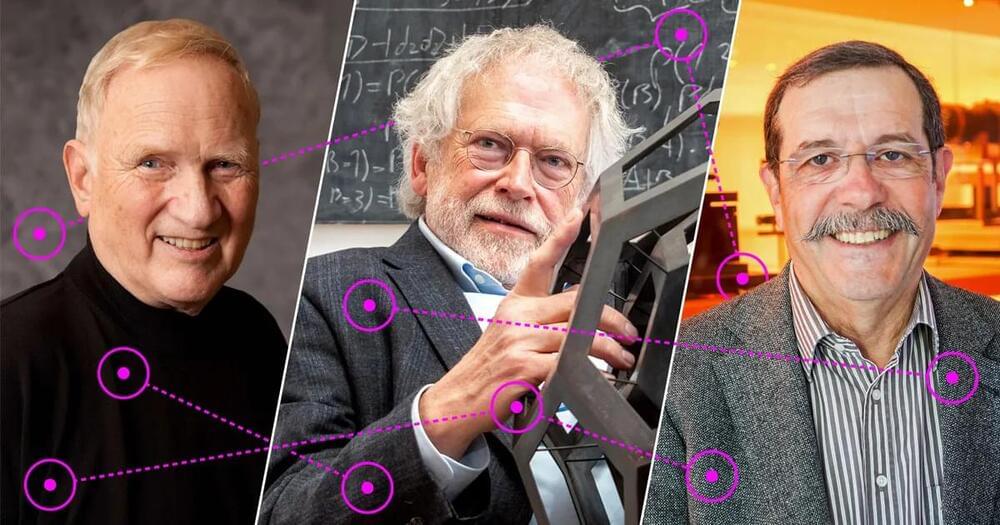The physicists Alain Aspect, John Clauser and Anton Zeilinger have won the 2022 Nobel Prize in Physics for experiments that proved the profoundly strange quantum nature of reality. Their experiments collectively established the existence of a bizarre quantum phenomenon known as entanglement, where two widely separated particles appear to share information despite having no conceivable way of communicating.
Entanglement lay at the heart of a fiery clash in the 1930s between physics titans Albert Einstein on the one hand and Niels Bohr and Erwin Schrödinger on the other about how the universe operates at a fundamental level. Einstein believed all aspects of reality should have a concrete and fully knowable existence. All objects — from the moon to a photon of light — should have precisely defined properties that can be discovered through measurement. Bohr, Schrödinger and other proponents of the nascent quantum mechanics, however, were finding that reality appeared to be fundamentally uncertain; a particle does not possess certain properties until the moment of measurement.
Entanglement emerged as a decisive way to distinguish between these two possible versions of reality. The physicist John Bell proposed a decisive thought experiment that was later realized in various experimental forms by Aspect and Clauser. The work proved Schrödinger right. Quantum mechanics was the operating system of the universe.









Comments are closed.